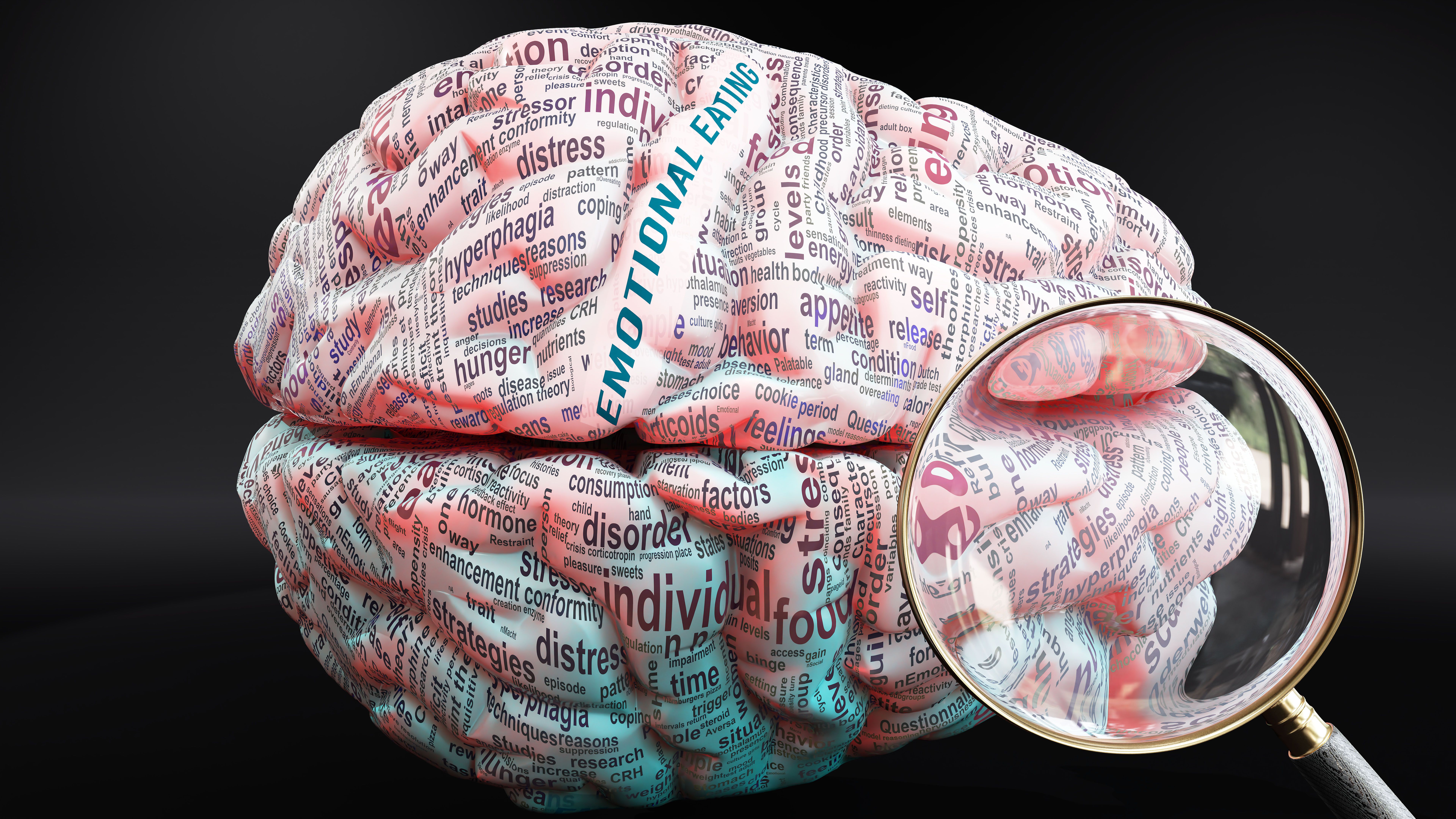
Vanessa Peat
08 December 2023
The labyrinth of disordered eating extends far beyond the confines of established eating disorders. This pervasive issue encompasses a spectrum of irregular eating behaviours and attitudes, often not gaining widespread recognition. Beyond the physical implications, disordered eating weaves a tapestry of mental and emotional challenges influenced by cultural standards, personal struggles, and psychological factors.
In this article, we seek to open up the conversation around this complex phenomenon, fostering awareness, compassion, and dialogue to address the often misunderstood aspects of disordered eating. Let’s start talking and ultimately breaking down stigmas surrounding this prevalent issue.
Disordered Eating vs. Eating Disorders
The distinction between disordered eating and a diagnosed eating disorder lies in the severity, frequency, and impact of abnormal eating behaviours. Disordered eating refers to a range of irregular eating habits that may not meet the criteria for a specific eating disorder. These behaviours can include things like occasional overeating, restrictive dieting, or preoccupation with food without causing significant distress or impairment.
On the other hand, a diagnosed eating disorder, such as anorexia nervosa, bulimia nervosa, or binge-eating disorder, involves more severe and persistent patterns of disordered eating that meet specific criteria outlined in psychiatric diagnostic manuals (e.g., ICD-11 or DSM-5). Diagnosis is typically made by healthcare professionals based on a thorough assessment of symptoms, behaviours, and their impact on a person’s overall well-being.
As well as disordered eating and eating disorders, you may have also heard about restrictive and selective eating. Selective eating, or picky eating, involves a limited range of preferred foods and avoidance of certain items, often rooted in taste preferences. On the other hand, restrictive eating entails conscious limitations on food intake, typically for weight control, and can have more immediate health implications.
While disordered eating encompasses a spectrum of behaviours, selective eating focuses on food preferences, and restrictive eating involves intentional limitations, each presenting unique challenges that may require attention and support from healthcare professionals for optimal well-being. As restrictive and selective eating are both complex disorders in their own right, we’re not going to delve any further into them in this article but will come back to them in more detail in our other blogs.

The Spectrum of Disordered Eating
Eating behaviours range from a healthy relationship with food on one side of the spectrum to eating disorders on the opposite side. Disordered eating falls somewhere in between. While it is distinct from clinically diagnosed eating disorders like anorexia nervosa, bulimia nervosa, or binge-eating disorder, disordered eating can still have severely adverse effects on physical and mental health.
Examples of disordered eating behaviours include:
- Frequent dieting: Engaging in various diets or restrictive eating patterns without medical supervision or a clear health-related need.
- Skipping meals: Consistently avoiding meals or snacks, which can disrupt normal eating patterns and lead to nutritional imbalances.
- Obsessive calorie counting: Constantly tracking and limiting calorie intake, often to an extreme degree.
- Unhealthy weight control methods: Using unhealthy methods such as fasting, excessive exercise, or the misuse of laxatives or diuretics to manipulate weight.
- Binge eating: Consuming large amounts of food in a short period, often accompanied by feelings of loss of control and guilt.
- Emotional eating: Using food as a way to cope with emotions, stress, or other non-hunger-related triggers.
- Body dissatisfaction: Having a negative perception of one’s body shape or size, leading to efforts to change or control weight through unhealthy means.
And these are just a few examples. There are many other versions of disordered eating, such as setting rigid rules around eating or experiencing anxiety and distress associated with food. It’s important to note that disordered eating behaviours exist on a spectrum, and any person may exhibit one or more of these behaviours without meeting the criteria for a diagnosed eating disorder.
However, persistent disordered eating can still have serious health consequences and may be indicative of an underlying issue that may benefit from professional help, such as counselling or therapy. Understanding this spectrum helps recognise a wide range of attitudes and behaviours related to food, emphasising the importance of promoting balanced and mindful approaches to eating.
Unraveling the Threads that Shape Eating Habits
Disordered eating can have various causes, and it often results from a complex interplay of biological, psychological, and environmental factors. Some potential contributors to the development of disordered eating include:
- Genetics: There may be a genetic predisposition to certain eating behaviours or vulnerabilities to developing eating disorders.
- Biological Factors: Hormonal imbalances, neurotransmitter abnormalities, and other biological factors can influence appetite, mood, and the regulation of eating behaviours.
- Psychological Factors: Mental health issues such as anxiety, depression, low self-esteem, or a distorted body image can contribute to disordered eating.
- Societal Pressures: Cultural and societal expectations regarding body image, beauty standards, and thinness can contribute to the development of disordered eating habits.
- Family Environment: Family dynamics, communication patterns, and the emphasis on appearance within a family can play a role in the development of disordered eating.
- Traumatic Experiences: Past trauma, abuse, or significant life stressors may contribute to the development of disordered eating as a coping mechanism.
- Dieting and Weight Control: Initiating strict diets or engaging in extreme weight control measures can lead to disordered eating patterns.
- Peer Influence: Social pressures and the desire to fit in or conform to perceived social norms regarding appearance and body size can influence eating behaviours.

These factors are often interconnected, and a person’s susceptibility to disordered eating may result from a combination of these influences. Additionally, people may use disordered eating as a coping mechanism for emotional distress or as a way to regain a sense of control.
The stigma surrounding disordered eating can perpetuate a cycle of shame, silence, and isolation for those affected. When grappling with abnormal eating behaviours, people often face misconceptions and judgment from others who may oversimplify the complexities of these issues. The perception that disordered eating is solely about willpower or vanity can create barriers to seeking help, as individuals may fear being labelled or misunderstood.
The reality is that disordered eating is a multifaceted challenge influenced by biological, psychological, and environmental factors. Reducing stigma involves fostering empathy, understanding, and open communication to create a supportive environment where those affected by disordered eating feel comfortable seeking assistance without fear of judgment.
If you, or someone you know, is experiencing disordered eating patterns, seeking professional support from a healthcare provider or mental health professional can help address the underlying causes and promote a healthier relationship with food. We are passionate about supporting people with disordered eating here at Uniquely Created Nutrition and Health (UCU) because it has personally affected one of our co-founders. We understand how complex it can be and can help you develop a healthier relationship with food.
Inspiring Hope in the Face of Disordered Eating
Vanessa Peat, co-founder of UCU, brings a unique perspective on disordered eating as a Performance Nutritionist and Registered Associate Nutritionist. However, her journey to this point has been marked by more than just professional accolades.
Vanessa’s journey began in her teenage years when she grappled with disordered eating triggered by an innocent yet impactful comment from a loved one. This ignited an unhealthy obsession with body image, leading to restrictive eating and its physical toll of headaches, fatigue, and light-headedness. Unbeknownst to Vanessa at the time, she was also navigating these feelings and situations with undiagnosed learning disabilities—dyslexia, dyspraxia, and visual stress. Simultaneously, unresolved childhood challenges cast a shadow on her well-being, leaving her feeling isolated and misunderstood.
In the midst of her struggles, Vanessa discovered a beacon of inspiration in the life of renowned neurosurgeon Dr Ben Carson. Drawn to his parallel journey of overcoming obstacles, including learning challenges and family mental health issues, Vanessa found solace and empowerment. This connection reshaped her mindset, dispelling the notion that she was alone in her struggles. Vanessa’s journey towards wellness involved more than just dietary modifications and increased physical activity. She had to confront her negative feelings and embrace her uniqueness. Inspired by Dr Ben Carson’s resilience, Vanessa underwent a profound change in mindset. No longer burdened by feelings of inadequacy, she reclaimed her active lifestyle, returning to sports and the activities that once brought her joy.
Today, Vanessa not only thrives in her professional role but also serves as a beacon of hope for those navigating disordered eating. Her story emphasises the transformative power of mindset, resilience, and a holistic approach to wellness, reminding us all that each journey is uniquely crafted and that everyone is indeed good enough.
Vanessa is dedicated to bridging the gap between scientific knowledge and its practical application in daily life. Her commitment extends to actively listening to her clients’ aspirations while emphasising a philosophy that prioritises the significance of food as a foundational element in achieving wellness.
Addressing the Mind-Body Connection
The mind-body connection plays a pivotal role in understanding and addressing disordered eating. As we have mentioned, emotional and psychological factors often influence how people relate to food, manifesting in behaviours that may deviate from healthy eating patterns. Stress, trauma, and negative body image can contribute to disordered eating, highlighting the interconnectedness of mental and physical well-being.
Recognising and addressing the emotional aspects of food-related behaviours is crucial in developing a holistic approach to recovery. Therapeutic interventions that emphasise mindfulness, cognitive-behavioural strategies, and self-compassion can be instrumental in helping you establish a healthier relationship with food.
When learning to overcome disordered eating, fostering a positive mind-body connection involves promoting awareness of your thoughts, feelings, and bodily sensations related to food. Mindful eating practices, which encourage present-moment awareness during meals, can help break harmful patterns and promote a more intuitive approach to nourishment. Integrating mental health support alongside nutritional guidance creates a comprehensive recovery plan that acknowledges the intricate interplay between the mind and body.
By addressing the root causes of disordered eating and fostering a balanced mind-body connection, you can work towards sustainable recovery and a more positive relationship with food and self.
FAQ's: Disordered eating
Can disordered eating affect periods?
Yes, disordered eating can disrupt your period. When your body isn't getting the nutrients it needs due to restricting calories or purging, hormone production can be thrown off, leading to irregular or missed periods. This is a warning sign from your body and should be addressed with a healthcare professional.
What can cause disordered eating?
Disordered eating can develop from a complex mix of factors, including dieting, body image pressures, stress, anxiety, and mental health conditions. It's important to seek help from a healthcare professional if you are struggling with disordered eating.
What are disordered eating behaviours?
Disordered eating behaviours are unhealthy habits related to food and weight control. These can include restriction, bingeing, purging, and excessive exercise. They can damage your health and relationship with food.
